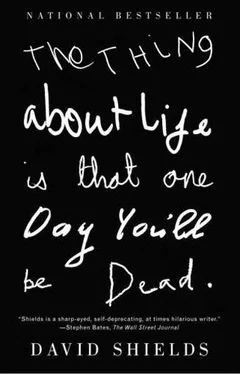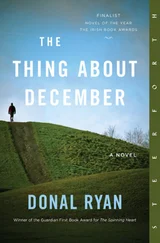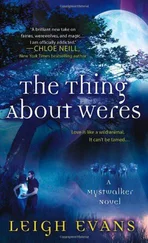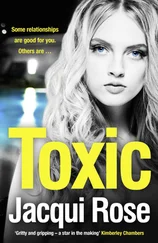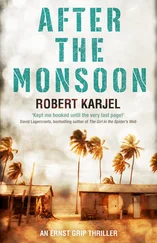News Flash: We Are Animals
My friend Suzanne e-mailed me about her daughter: “Naomi is nine now, edging up to those perilous years, and while I realize that some awkwardness is inevitable for teenagers, I sense that for girls the body-confidence that is lost is often lost for good. I keep this image of Naomi in my mind: when she comes home from school, she likes to grab a yogurt from the fridge and eat it out on the deck while she hula hoops. She uses two hula hoops at once and she’ll stand practically still, barely twitching her nonexistent hips, spooning yogurt into her mouth and telling me about her day. The hula hoops spin around her as smoothly as satellites, as if there is some intense gravitational pull coming from inside of her. This ritual never ceases to leave me gaping in astonishment and gratitude. Where does this grace come from? My hunch is that her utter lack of self-consciousness about the pleasure it gives her to move her body renders her incredibly graceful. She has an anthem that I love. She’ll approach me very seriously and say, ‘Mom. Mom. I have to tell you something.’ She locks me into a deep stare and then suddenly she’s bouncing up and down in a dance that’s all knees and elbows, singing, ‘There’s a little bit of frog in all of us, no matter who you be!’”
• • •
When Natalie was 11, panda bears (sad-eyed, sedentary, round: cute) were her favorite things in existence. She made a board game entitled I’m Outta the Pound!: pets escape the pound and try to find a home. “Sex must be an okay thing,” she told me, “because people have sex to produce more life.” She still does stunningly accurate imitations of animals.
My favorite moment of Natalie’s weekly soccer game occurs when the game is over, the parents are handing out snacks, and all the girls are sitting in a circle, not really talking much but drinking their juices and eating their cookies, enjoying their bodies’ exhaustion, utterly in tune with themselves and one another. Sometimes my dad will be there and he’ll stop taking pictures for a minute and, his eyes misting, he’ll just revel and kvell in the moment, the fact and glory of physical existence.
Hoop dream (i):
There has always been some strange connection for me between basketball and the dark. I started shooting baskets after school in third grade, and I remember dusk and macadam combining into the sensation that the world was dying but I was indestructible. One afternoon I played H-O-R-S-E with a classmate, Renée Hahn, who threw the ball over the fence and said, “I don’t want to play with you anymore. You’re too good. I’ll bet one day you’re going to be a San Francisco Warrior.”
Renée had a way of moving her body like a boy but still like a girl, too, and that game of H-O-R-S-E is one of the happiest memories of my childhood: dribbling around in the dark but knowing by instinct where the basket was; not being able to see Renée but smelling her sweat and keeping close to her voice, in which I could hear her love for me and my life as a Warrior opening up into the night. I remember the sloped half-court at the far end of the playground, its orange pole, orange rim, and wooden green backboard, the chain net clanging in the wind, the sand on the court, the overhanging eucalyptus trees, the fence the ball bounced over into the street, and the bench the girls sat on, watching, trying to look bored.
The first two weeks of summer, Renée and I went steady, but we broke up when I didn’t risk rescuing her in a game of Capture the Flag, so she wasn’t around for my 10th birthday. I begged my parents to let Ethan Saunders, Jim Morrow, Bradley Gamble, and me shoot baskets by ourselves all night at the court across the street. My mother and father reluctantly agreed, and my father swung by every few hours to make sure we were safe and bring more Coke, more birthday cake, more candy.
Near midnight, Bradley and I were playing two-on-two against Jim and Ethan. The moon was falling. We had a lot of sugar in our blood, and all of us were totally zonked and totally wired. With the score tied at 18 in a game to 20, I took a very long shot from the deepest corner. Before the ball had even left my hand, Bradley said, “Way to hit.”
I was a good shooter because it was the only thing I ever did, and I did it all the time, but even for me such a shot was doubtful. Still, Bradley knew and I knew and Jim and Ethan knew, too, and we knew the way we knew our own names or the batting averages of the Giants’ starting lineup or the lifelines in our palms. I felt it in my legs and up my spine, which arched as I fell back. My fingers tingled and my hand squeezed the night in joyful follow-through. We knew the shot was perfect: when we heard the ball (a birthday present from my father) whip through the net, we heard it as something we had already known for at least a second. What happened in that second during which we knew? Did the world stop? Did my soul ascend a couple of notches? What happens to ESP, to such keen eyesight? What did we have then, anyway, radar? When did we have to start working so hard to hear our own hearts?
At the end of J. M. Coetzee’s novel Elizabeth Costello, the only thing the eponymous elderly protagonist can affirm is not love or art or religion but the sound of frogs, trapped in mud, belling with the cessation of torrential rain. Nietzsche: “There is more wisdom in your body than in your deepest philosophy.” Wittgenstein said, “Our only certainty is to act with the body.” Martha Graham: “The body never lies.” We are all thrillingly different animals, and we are all, in a sense, the same animal. The body—in its movement from swaddling to casket—can tell us everything we can possibly know about everything.
At the Alaska SeaLife Center, Aurora, a Giant Pacific female octopus, was introduced to J-1, a male octopus. They flashed colors and retreated to a dark corner of the center’s “Denizens of the Deep” display. A month later, Aurora laid thousands of eggs. Despite the fact that her eggs didn’t appear to develop and aquarists—the animals’ caretakers—believed the eggs were sterile, Aurora daily sucked in water through her mantle and sent cleansing waves over the eggs, defending them against hungry sea cucumbers and starfish. Even when aquarists, certain the eggs weren’t fertile, began draining her 3,600-gallon tank, Aurora sprayed her eggs, exposed and drying on rocks. Several eggs from Aurora hatched exactly 10 months after her encounter with J-1 (long since deceased); nine baby octopi received food through an electronic, automatic feeder in a rearing tank. Although Giant Pacific females usually die about the same time as their eggs hatch, mostly because they stop eating for months and spend their energy defending their eggs, aquarist Ed DeCastro said Aurora appeared invigorated and that “she was still tending the eggs.”
• • •
In seventh grade, Natalie suddenly loved to criticize Laurie for getting a point of information wrong or having pieces of food caught between her teeth or chewing too loudly or, especially, talking while eating. These were, I now know, the opening fisticuffs of the apparently inexorable mother-daughter donnybrook that will dominate our house for the next several years.
My father takes a variety of medications to combat anxiety, depression, and sleeplessness. Earlier this year, he and I visited his psychiatrist to make sure that he was taking them in the right combination. We had a few extra minutes at the end of the session, so I asked my father’s very Freudian psychiatrist why teenage daughters are so critical of their mothers. He said, “All that hormonal energy is coursing madly through a daughter’s body, and it becomes, for various reasons, anger at the mother. I think the daughter unconsciously senses the tremendous leverage the onset of her fertility gives her, which causes the family to start treating her with more deference. She’s the chance for the family to perpetuate itself. Her mother’s leaving this arena just as the daughter’s entering it. When they study this issue, disputes between mothers and daughters, not only does the father invariably side with the daughter”—I can’t remember my father ever doing this with my sister; my mother ruled the roost, regardless—“but so does everybody else. The genes are driving the family to protect the most fertile female. So a good deal of a girl’s anger at her mother has to do with the mixture of power she feels with the onset of fertility and the burden she feels at being the designated bearer of children.” My dad sat next to me, listening to this, nodding and mmmhuhing, elbowing me in the ribs at appropriate moments, proud of his shrink’s Olympian overview.
Читать дальше
